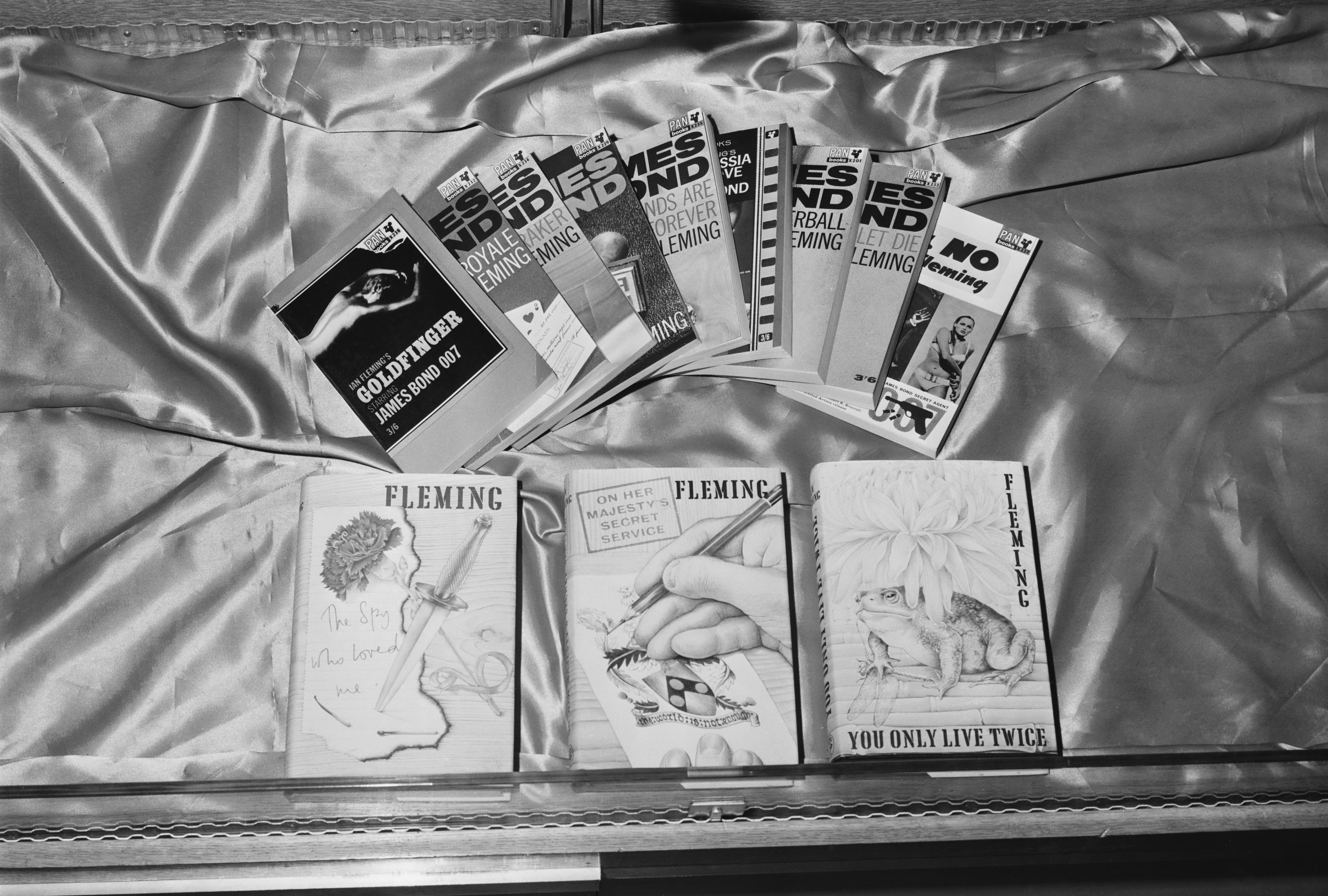‘Sweet tang of rape’: Offensive language that has – and hasn’t – been cut from Ian Fleming’s James Bond books
An overview of what’s made the cut in the sensitivity reader-approved editions
Your support helps us to tell the story
From reproductive rights to climate change to Big Tech, The Independent is on the ground when the story is developing. Whether it's investigating the financials of Elon Musk's pro-Trump PAC or producing our latest documentary, 'The A Word', which shines a light on the American women fighting for reproductive rights, we know how important it is to parse out the facts from the messaging.
At such a critical moment in US history, we need reporters on the ground. Your donation allows us to keep sending journalists to speak to both sides of the story.
The Independent is trusted by Americans across the entire political spectrum. And unlike many other quality news outlets, we choose not to lock Americans out of our reporting and analysis with paywalls. We believe quality journalism should be available to everyone, paid for by those who can afford it.
Your support makes all the difference.In the middle of a furore over the rewriting of Roald Dahl’s children’s books for sensitivity reasons, it has now also emerged that Ian Fleming’s James Bond novels are being edited for modern readers.
Over the weekend, it was revealed that Fleming’s 007 books have been rewritten to omit racist language and a number of racial references.
The edited novels will be published in April to mark 70 years since Casino Royale, the first in the series, was published.
The move comes after Ian Fleming Publications Ltd, which owns the rights to his work, commissioned a review by sensitivity readers of the novels, The Telegraph reports.
The controversial news followed only days after it was announced that Roald Dahl’s best-selling children’s books were being rewritten to remove language considered offensive, such as the word “fat”.
Citing similar reasons to Dahl’s publisher Puffin, a disclaimer accompanying Fleming’s reissued books will read: “This book was written at a time when terms and attitudes which might be considered offensive by modern readers were commonplace.
“A number of updates have been made in this edition, while keeping as close as possible to the original text and the period in which it is set.”
Here are three of the most glaring edits unearthed in the newspaper’s investigation… and three of the most conspicuous elements to remain.
OUT GO…
N-word is removed
Fleming used the N-word in his writing during the Fifties and Sixties. Instances of the racist word have been “almost entirely” removed from the revised novels.
The publication notes that in most cases, the word has been replaced by “Black person” or “Black man”.

Racial descriptors removed entirely
They note, however, that sometimes racial descriptors have been expunged altogether.
For instance, in the revised version of 1958’s Dr No, the criminals are called “gangsters”.
In the same novel, the race of a doctor, immigration officer, and a henchman shot by Bond are not stated.
Likewise, in 1961’s Thunderball, the ethnicity of a barman is also removed as is the butler’s race in Quantum of Solace (1959).
Striptease scene
In 1954’s Live and Let Die, Fleming describes a scene in which Bond visits Harlem in New York. There, he enters a nightclub where a woman’s strip tease excites the male customers, including himself.
Fleming wrote: “Bond could hear the audience panting and grunting like pigs at the trough. He felt his own hands gripping the tablecloth. His mouth was dry.” The revised version omits the pig references, writing instead: “Bond could sense the electric tension in the room.”

AND YET, STILL INCLUDED…
“Dated references” to East Asian people
The Telegraph writes that “dated references” to other ethnicities will remain in the books, such as Bond’s terms for and views of east Asian people.
The publication does not specify these references, but Fleming’s books are not short of examples.
In 1959’s Goldfinger, the author writes that Bond’s believes “Oddjob and any other Korean” to be “rather lower than apes in the mammalian hierarchy”.
Similarly, in 1964’s You Only Live Twice, after being told that there are no swear words in Japanese, Bond says he is surprised and calls Japanese people: “A violent people without a violent language.”

“The sweet tang of rape”
Given the publisher’s cited reasons for editing the books, it may surprise readers to learn that, according to The Telegraph, the books will still reference “the sweet tang of rape”.
While it is not specified which references will remain, the phrase arises more than once in Fleming’s work.
The Spy Who Loved Me, the shortest of the series, is narrated in first person by Vivienne Michel, a young Canadian woman with Bond not appearing until two-thirds of the way through the book.
Bond saves Vivienne from two men who plan to rape her, after which they have sex. Voiced by his female narrator, Fleming wrote: “All women love semi-rape. They love to be taken. It was his sweet brutality against my bruised body that made his act of love so piercingly wonderful.”
Prior to that, Fleming used the phrase in Casino Royale. On having sex with Vesper Lynd, Bond muses: “And now he knew that… the conquest of her body, because of the central privacy in her, would have the sweet tang of rape.”

Homosexuality as a “stubborn disability”
In 1963’s On Her Majesty’s Secret Service, Fleming writes that homosexual is an example of a “stubborn disability” alongside “asthma” and “bed-wetting”.
The scene in question arrives as Fleming’s character deliberates the efficacy of hypnosis.
“Now. there is plenty of medical evidence of the efficacy of hypnosis,” he writes. “There are well-authenticated cases of the successful treatment by these means of such stubborn disabilities as warts, certain types of asthma, bed-wetting, stammering and even alcoholism, drug-taking, and homosexual tendencies.”
The Bond news comes a week after it emerged that Dahl’s books were being rewritten to remove language considered offensive.
The word “fat”, for example, had been cut from all pages. Charlie and the Chocolate Factory‘s Augustus Gloop is instead described as “enormous”.
On Friday (24 February), the Queen Consort forced publisher Puffin UK to back down on its censorship of the author’s work after she weighed in on the row.



